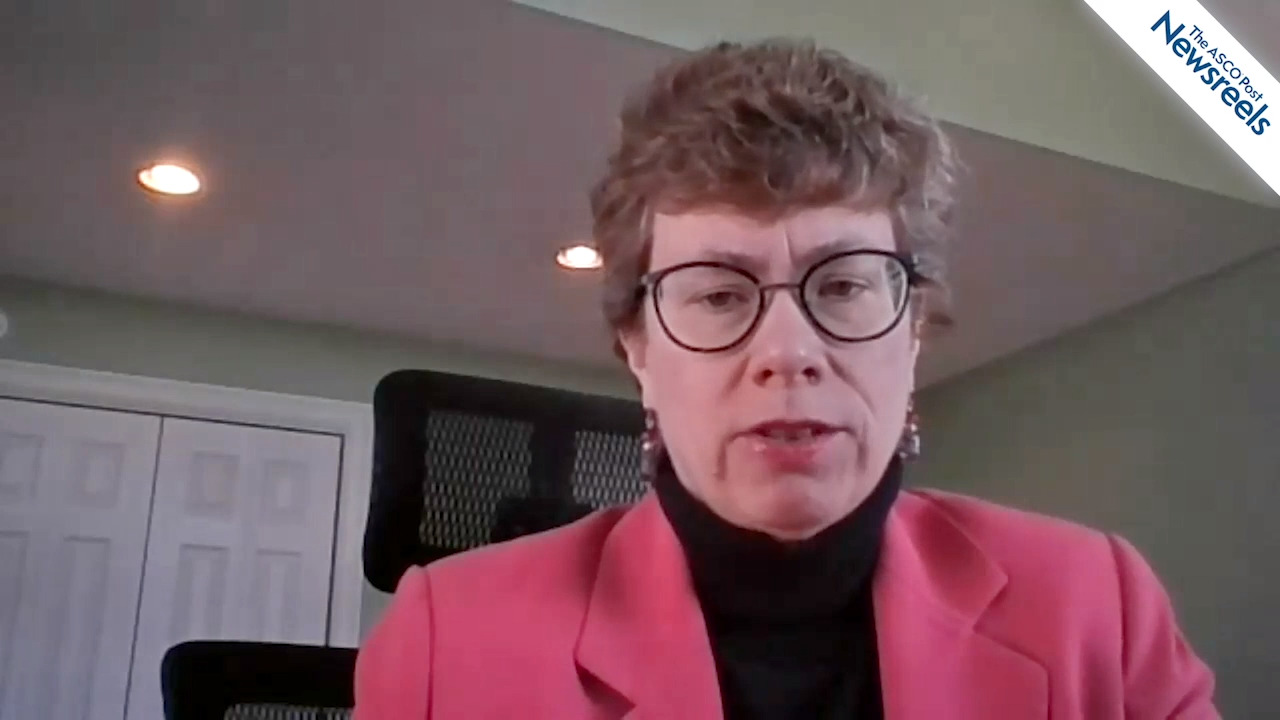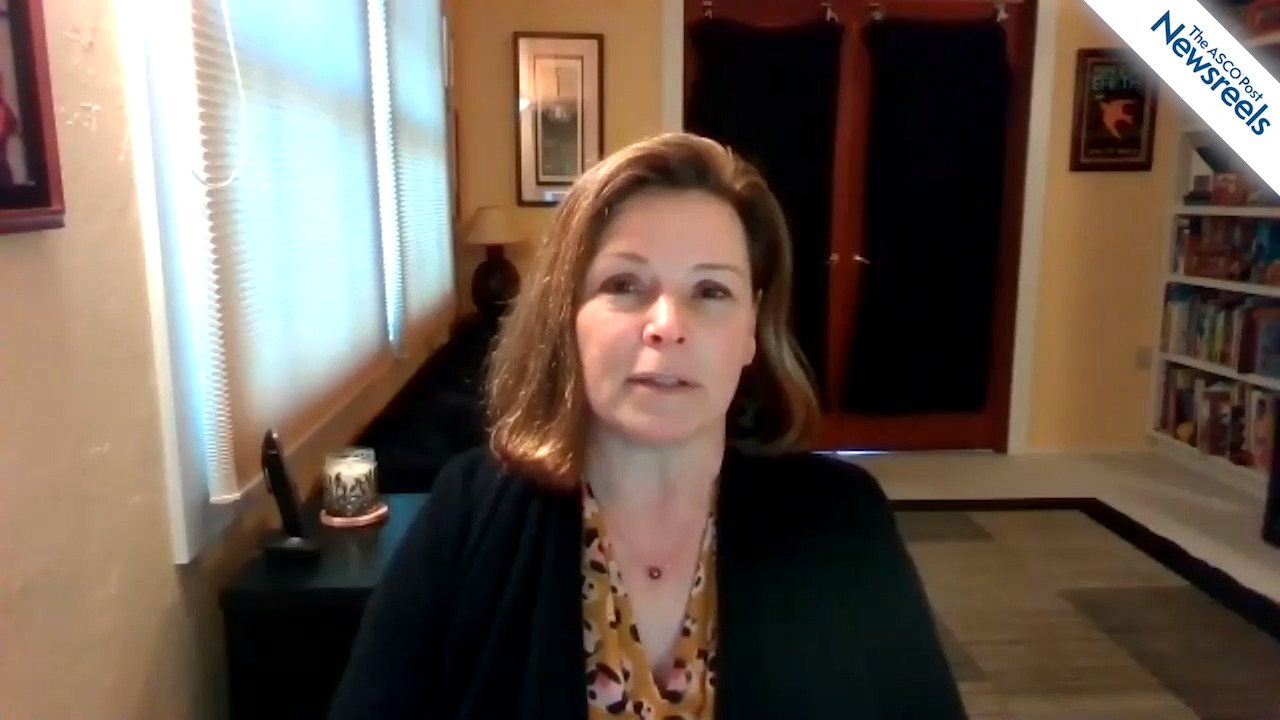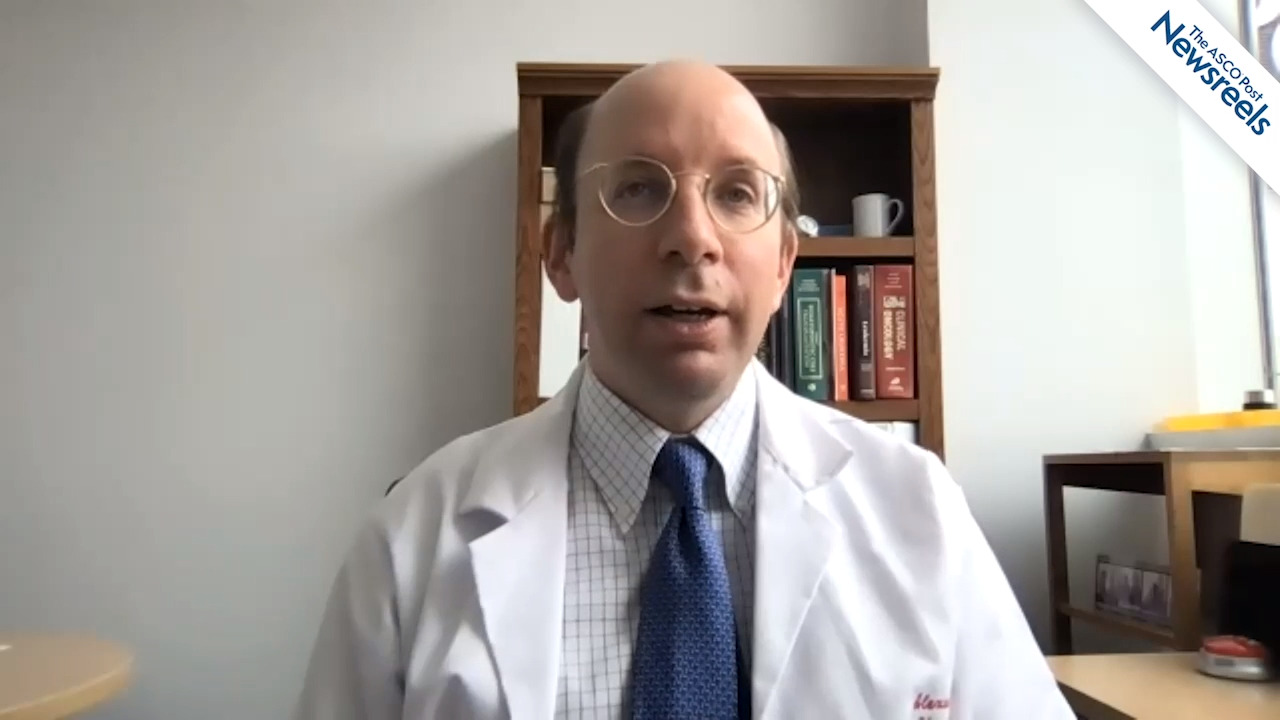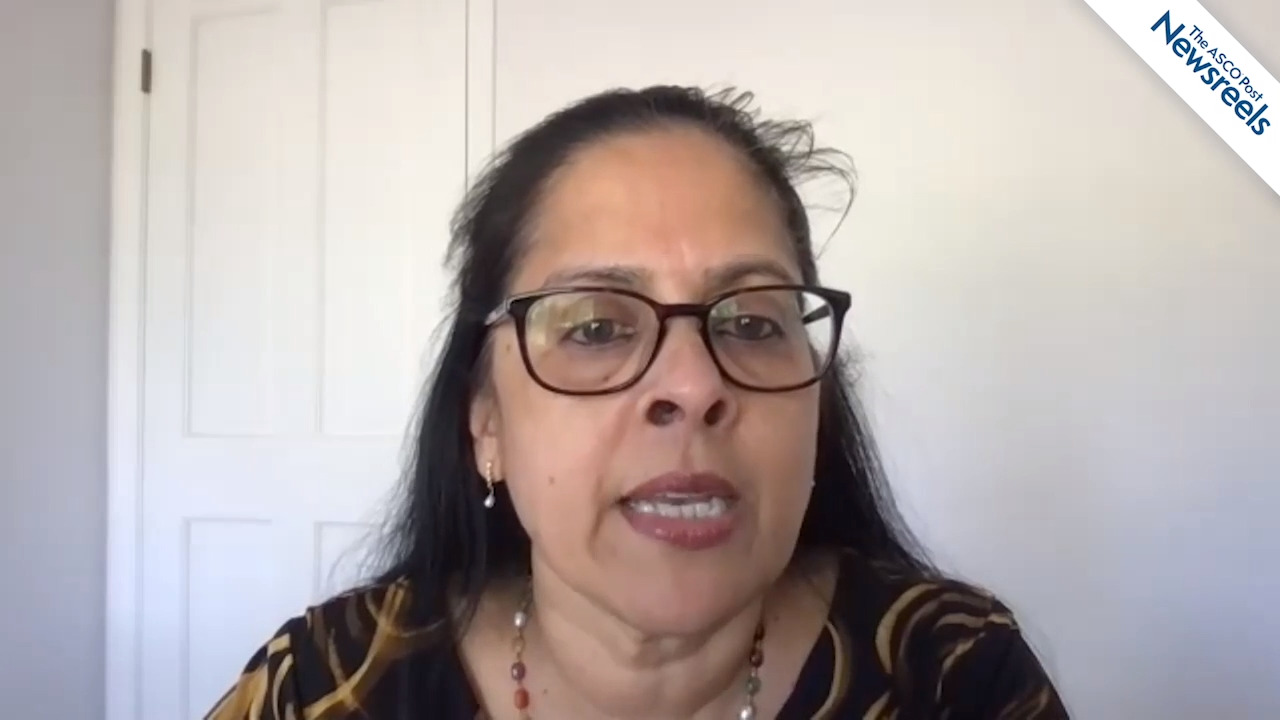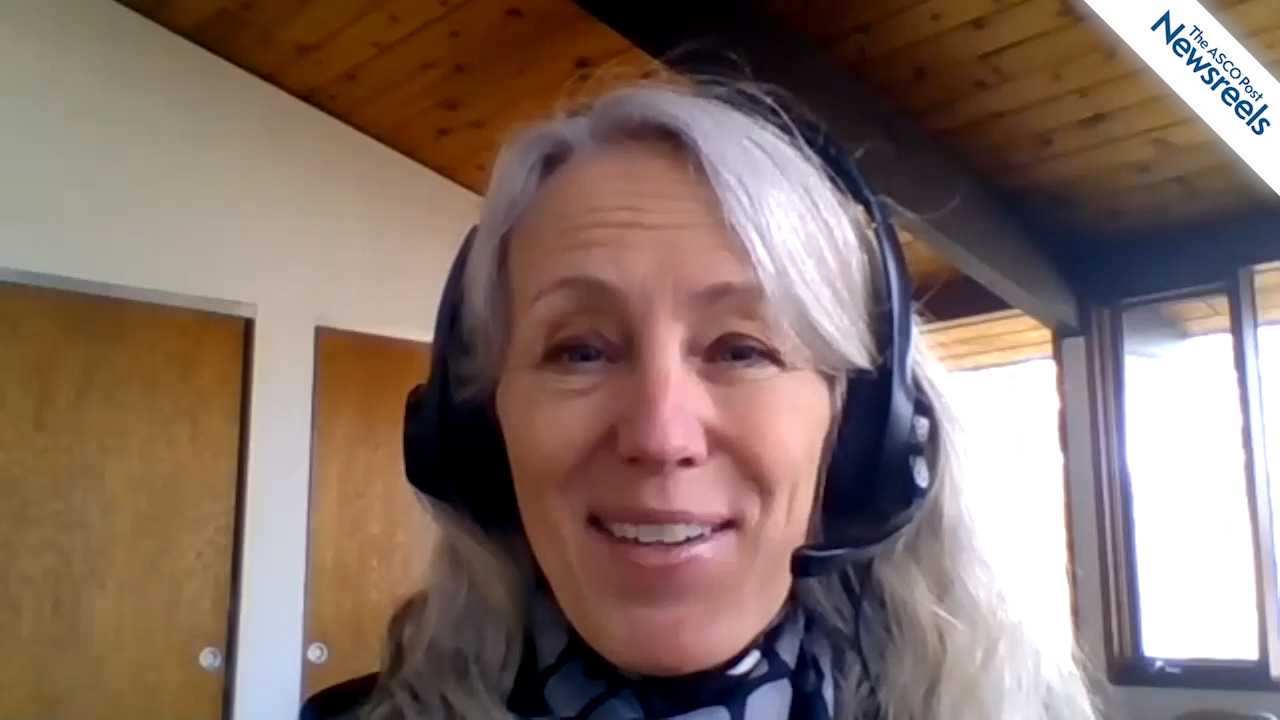Mary F. Mulcahy, MD, and Crystal S. Denlinger, MD, on NCCN Guidelines Updates: Gastric and Esophageal Cancers
NCCN 2021 Virtual Annual Conference
Crystal S. Denlinger, MD, of Fox Chase Cancer Center, and Mary F. Mulcahy, MD, of the Robert H. Lurie Comprehensive Cancer Center of Northwestern University, discuss biomarkers for determining treatment; immune checkpoint inhibitors; when to employ such treatments as platinum/fluoropyrimidine and fam-trastuzumab deruxtecan-nxki; and other second- or later-line therapies such as paclitaxel, ramucirumab, irinotecan-based regimens, and trifluridine/tipiracil.
The ASCO Post Staff
Jennifer R. Brown, MD, PhD, of Dana-Farber Cancer Institute, discusses treatment choices for patients with relapsed or refractory CLL/SLL, when to stop therapy due to adverse events, BTK inhibitors and their second-generation counterparts, the need for ways to manage disease progression on novel drugs, and minimal residual disease as a predictor of response.
The ASCO Post Staff
Susan M. Swetter, MD, of Stanford Cancer Institute, discusses molecular prognostic tests for cutaneous melanoma, which may improve staging accuracy, reduce unnecessary sentinel lymph node biopsies, and inform decisions on surveillance imaging and/or adjuvant therapy.
The ASCO Post Staff
Alexander E. Perl, MD, of the Abramson Cancer Center at the University of Pennsylvania, discusses the major changes in 2021 to the NCCN Clinical Practice Guidelines in Oncology for managing acute myeloid leukemia, including venetoclax plus azacitidine, a new standard of care in patients ineligible for intensive induction; oral azacitidine maintenance in fit patients unable to complete intensive consolidation chemotherapy or proceed to transplant; and an increased focus on minimal residual disease status post-induction.
The ASCO Post Staff
Sandy Srinivas, MD, of Stanford Cancer Institute, discusses the increasing number of ways to deliver life-prolonging therapy to patients with advanced prostate cancer, including more accurate imaging techniques; PET tracers to help better detect, diagnose, and treat disease; PARP inhibitors for BRCA and other mutations; and new sequencing of drugs.
The ASCO Post Staff
Lori J. Wirth, MD, of Massachusetts General Hospital Cancer Center, discusses the common molecular alterations across thyroid cancer subtypes; targeted treatments for BRAF V600E–mutant, NTRK–fusion positive, and RET–altered disease; and optimal therapies for patients with multiple types of thyroid cancer.
